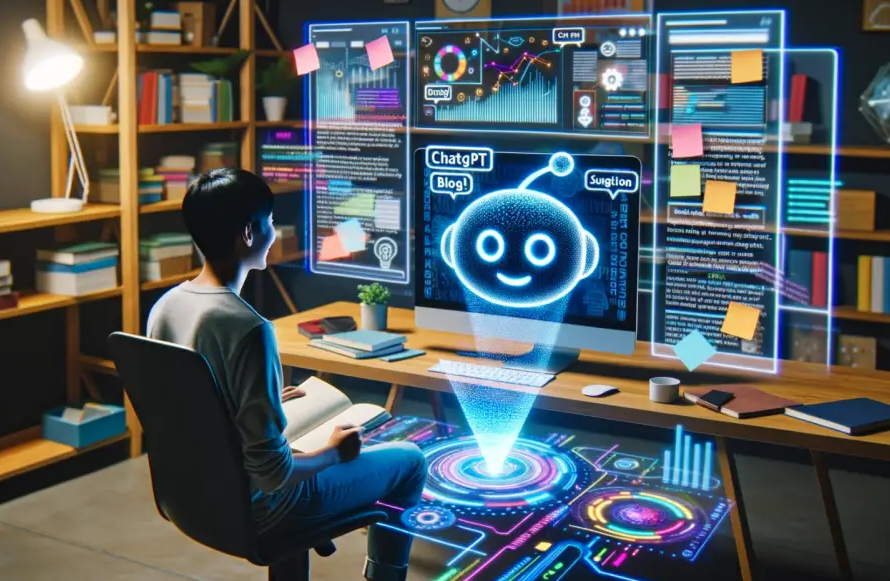As the varsity bell rings for a brand new educational 12 months, schooling leaders throughout the nation are dealing with a special form of homework – addressing the problem and ethics of AI utilization in lecture rooms.
Beforehand dismissed as one more shortcut to plagiarize work, AI platforms like ChatGPT are actually quickly being accepted and built-in as very important elements of on a regular basis studying instruments.
Not a very long time in the past, synthetic intelligence in faculties was considered dubiously by schooling heads throughout the nation.
Issues notably escalated with the introduction of ChatGPT in November, which demonstrated writing capabilities doubtlessly equal to, if not larger than, these of scholars themselves.
Confronted with the possibly destabilizing impact of those tech instruments being available to college students, college districts made efforts within the earlier educational 12 months to determine digital boundaries separating them from AI.
AI in lecture rooms was initially seen as fostering a ‘shortcut tradition’ somewhat than genuine academic improvement. Academic establishments wrestled with the difficulty of how these algorithms may promote plagiarism or allow college students to slack.
Whereas these platforms have been initially met with precaution from educators, faculties are actually turning into extra pragmatic within the new educational 12 months.
Quite than banning these instruments outright, establishments have began to discover methods they can be utilized as useful studying aids. This mindset change displays rising recognition of generative AI’s potential advantages, if used accurately, for academic functions.
As an example, a number of highschool academics have assigned college students tasks involving ChatGPT. One such challenge entails asking the chatbot to compose poetry in a particular type, after which college students analyze the generated content material, shared Janella T. Hinds, Vice President for Educational Excessive Colleges on the United Federation of Academics.
One other instance is Los Angeles Unified, the nation’s second-largest district, creating a school-specific chatbot referred to as “Ed”. Regardless of initially banning ChatGPT on district gadgets, they acknowledged the advantages of such know-how and have since deployed their chatbot throughout 100 faculties.
Accessible by way of smartphones, “Ed” provides quite a lot of options designed to encourage educational development and organizational expertise.
This bot not solely reminds college students to finish assignments, but in addition assists mother and father in accessing their kids’s grades and attendance data.
Inside six months, “Ed” shall be expanded to all district faculties. Superintendent Alberto Carvalho praised the software program at a college 12 months kickoff occasion as “that voice that speaks to you early within the morning, late within the night, wakes you up, nudges you, reminds you of your attendance, your homework,”.
In New York Metropolis, Colleges Chancellor David Banks articulated the district’s choice to embrace generative AI regardless of having banned it earlier.
After heated debates and consultations with educators throughout town, who had already begun incorporating AI into their lecture rooms, Banks’ place on AI advanced considerably. College students debating moral points surrounding AI prejudice, bolstered his perception in selling knowledgeable discussions about this novel know-how.
Beneath Financial institution’s management, New York Metropolis faculties not solely lifted some restrictions on ChatGPT, however started actively embracing its prospects for reworking schooling techniques – from personalised lesson plans to good administrative instruments – whereas making certain a balanced understanding of each its energy and related dangers.
Regardless of embracing this new discovered instrument, faculties don’t neglect worries about doable misuse.
Maintaining a examine on these new guidelines is sort of tough, primarily as a result of there’s no fail-safe manner but to inform for certain if content material was created by an individual or whipped up by a machine.
Corporations claiming they will detect AI-written items obtain skepticism from many schooling professionals who argue such guarantees usually show unrealistic. Even essentially the most superior instruments cannot all the time precisely decide what’s human-written.
“There are some corporations proper now that declare that they will detect AI,” mentioned schooling researcher H. Alix Gallagher from Stanford College throughout an interview. “I might suggest suspicion in regards to the guarantees of catching dishonest. And something that claims we are able to protect the established order is, I believe, unfaithful.”
This entire back-and-forth we have seen with AI in faculties has made one factor crystal clear: as future tech retains seeping into all corners of our world, together with lecture rooms, it is for certain gonna shake up how we take into consideration educating.
However this doesn’t suggest academics get to disregard the tough bits that come together with utilizing this type of cutting-edge know-how – we have now to determine find out how to use these new instruments with out letting issues go off the rails.
Reality is, no one can predict precisely what’s across the nook with AI and the way it will disrupt schooling.
Numerous academics although are beginning to see generative AI much less like a scary game-changer and extra like a secret weapon: keep in mind when calculators first began popping up in math courses?
These new instruments may take over a few of these boring bits so youngsters have extra time to wrap their heads round larger concepts.


